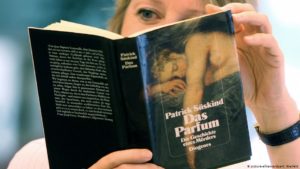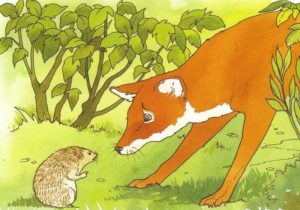When I immatriculated at Stockholm University 50 years ago, I chose chemistry as my first subject. I learnt, among other things, that science is about abstract concepts, experiments and precise observations. We spent months weighing substances, calibrating pipettes and calculating errors of measurement.
But what lingers most strongly in my memory is that chemistry was also an intensely sensuous discipline (today, maybe it’s all learnt in front of the computer screen?).
All the senses were involved. I vividly remember the beautiful colours of some of the (mostly organic) stuffs we produced and the click-click-click sounds of the Geiger counter. But most of all I remember the experience of smell.
As I remember it, all substances we used and produced smelled of something. Ammonia, hydrochloric acid, nitrous gases, bromine, hydrogen sulphide, and a whole array of carboxylic acids, ethers, aldehydes and ketones — it was a continuous bombardement with specific smells, many of them pleasant and sometimes dangerous, some foul but nonetheless often harmless, at least in small concentrations. (note 1)
The lasting impression in my memory is not the specific smells of specific substances, however. What I remember best is the unspecific smell atmosphere (note 2) of the laboratory — ranging from a vague sense of bakelite plastic and vacuum tubes in the physical chemistry room to the heavily odorous organic chemistry lab, which even the most efficient fume hoods couldn’t remove and which impregnated our lab coats and underwear.
That experience of vague smell atmospheres has followed me throughout life. I am very much aware of the vague, yet specific, odourous impression of other peoples’ homes, of restaurants, schools, pharmacies, inner-city streets, suburbs, forests, etc.
 Would it be possible to write a memoir that focuses on my experience of smell atmospheres? Something akin to the fictional scent-focused biography of Jean-Baptiste Grenouille that Patrick Süskind outlined in Das Parfum. Not a fictional story and not focused on specific odours, but more in the form of an autobiographical report of my life in terms of the different kinds smell atmospheres I have encountered throughout life.
Would it be possible to write a memoir that focuses on my experience of smell atmospheres? Something akin to the fictional scent-focused biography of Jean-Baptiste Grenouille that Patrick Süskind outlined in Das Parfum. Not a fictional story and not focused on specific odours, but more in the form of an autobiographical report of my life in terms of the different kinds smell atmospheres I have encountered throughout life.
Would a smell memoir be too monotonous? Too emasculated? Too vague and too short?
Probably. But it would nevertheless be interesting to develop the notion of the atmospheric qualities of memory further. To my best knowledge, the notion of atmospheric smell as a dimension of our memory of the past has not been treated in the literature (whereas memories of specific smells are of course a commonplace topic, not least due to Marcel Proust’s famous Madeleine cake experience and its impact on subsequent generations of scholars).
Any ideas how to proceed?
Notes:
1. Smell in the chemistry lab has been discussed by others; for example, David Lowe has written about the smell in contemporary organic chemistry labs, and historical aspects of smell in the chemistry laboratory has been studied by the Uppsala historian of science Anders Lundgren.
2. It was my former PhD student Anette Stenslund who made me aware of the phenomenological concept of ‘atmosphere’ and smell as a component of the sensuous ‘atmosphere’.
(photo credit: https://www.spiegel.de/international/zeitgeist/joy-milne-can-smell-parkinson-s-before-it-is-diagnosed-a-1295601.html

 I think it’s the other way around.
I think it’s the other way around. Aside from some experiments with a photo memoir, most of my autobiographical work has so far only been about recalling memories, reading documents and writing texts — words, sentences, sections, chapters, a single story. And so it will remain. I’m a text person.
Aside from some experiments with a photo memoir, most of my autobiographical work has so far only been about recalling memories, reading documents and writing texts — words, sentences, sections, chapters, a single story. And so it will remain. I’m a text person. For example, in
For example, in